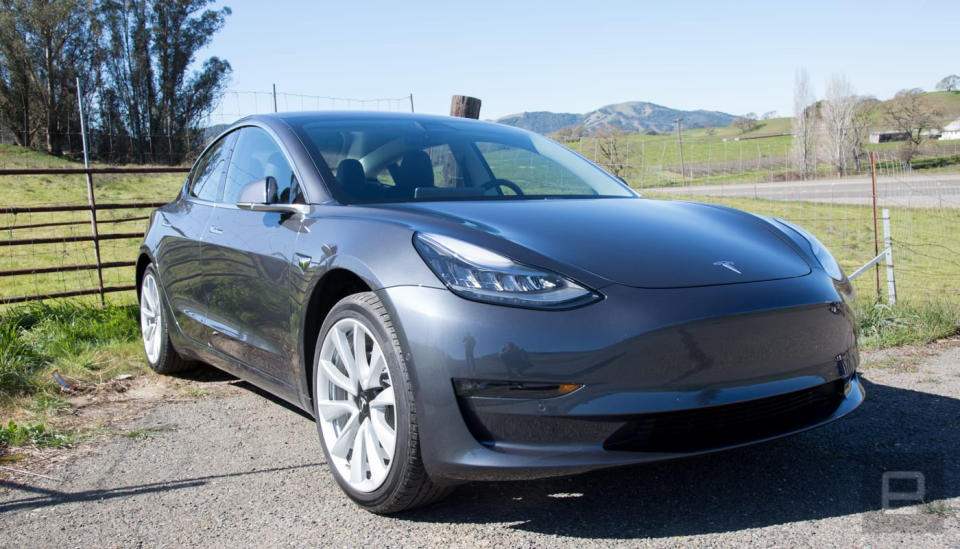Apple has reportedly scaled back its automotive aspirations, at least for now. Bloomberg’s Mark Gurman says the company’s decade-old vehicle project has pivoted from planning a fully self-driving car to an EV more like Tesla’s. The so-called “Apple Car” is now projected to launch no earlier than 2028 — two years after the company’s last reported target date.
The car’s autonomous features have reportedly been downgraded from a Level 5 system (full automation) to a Level 4 system (full automation in some circumstances) — and now to a Level 2+ one (partial automation). That would mean it offers limited self-driving features like lane centering and braking / accelerating support — while still requiring the driver’s full attention.
Tesla’s Autopilot is categorized as Level 2. Level 2+ isn’t an official designation, but it’s sometimes used informally to describe a more advanced version of Level 2.
What Apple once envisioned as a car without a steering wheel or pedals — and perhaps having a remote command center ready to take over for a driver — now looks more like a Tesla-like market entrance.


Bloomberg says Apple views the project’s downscaling internally as “a pivotal moment.” People familiar with Apple’s plans allegedly believe delivering the pared-down Apple Car with reduced expectations could make or break the entire project. “Either the company is finally able to deliver this product with reduced expectations or top executives may seriously reconsider the project’s existence,” Gurman wrote.
Apple has reportedly talked with potential manufacturing partners in Europe about the updated strategy. Bloomberg says the company still wants to offer a Level 4 autonomous system at some point, even as its debut is on track for something more grounded.
Bloomberg describes the meetings leading up to Apple’s decision as “frenzied,” involving CEO Tim Cook, the Apple board and project head Kevin Lynch. The latter took over after former leader Doug Field left in 2021. (Field was a former Tesla engineering head who now leads Ford’s EV wing.) The board reportedly pushed leadership about the car plan throughout 2023.
After starting well out of the blocks, self-driving cars didn’t have a great 2023. Cruise, GM’s robotaxi division, laid off 24 percent of its workforce in December. That came after one of the company’s vehicles pinned and dragged a pedestrian who had been hit by another car. The aftermath was swift, as the California DMV suspended Cruise’s driverless permits over safety concerns. On the brighter side, Waymo seems to be doing well. But government standards are the wild card in this equation, and perhaps Apple saw the wind blowing in a direction that warranted caution.
Apple’s Project Titan has been the subject of rumors since at least the mid-2010s. The company has spent hundreds of millions of dollars on the initiative. It’s worked on “powertrains, self-driving hardware and software, car interiors and exteriors, and other key components,” according to Gurman. Given how many times the expensive project’s details have changed, don’t be surprised if they do so again.

